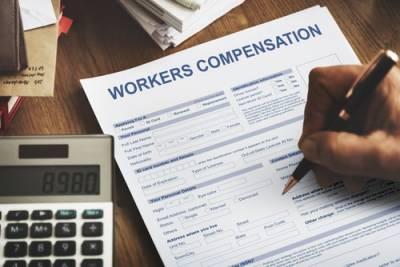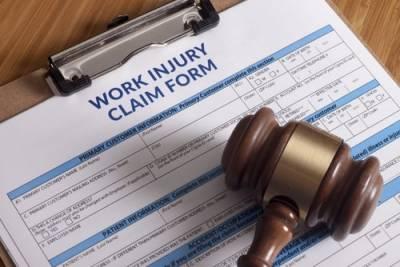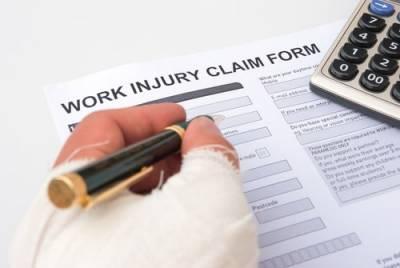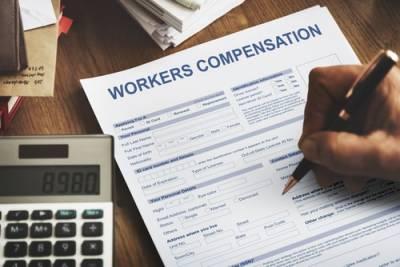Recent Blog Posts
Determining Whether a Work Injury Aggravated a Pre-Existing Condition
 There are many ways a person may be injured in the workplace or because of work-related activities and tasks. While workers’ compensation covers situations where employees are injured while working, there are some cases where workers and employers may disagree about whether an injury was work-related. These disagreements often address pre-existing conditions, and an employer may claim that an employee’s injury was solely the result of a non-work-related illness or health condition rather than the work the person performed or the conditions in the workplace. However, workers’ comp benefits are available in cases where a work injury resulted in the aggravation of a pre-existing condition. Workers with pre-existing conditions will want to understand how the California Department of Workers’ Compensation decides whether work-related factors aggravated their injuries or health issues.
There are many ways a person may be injured in the workplace or because of work-related activities and tasks. While workers’ compensation covers situations where employees are injured while working, there are some cases where workers and employers may disagree about whether an injury was work-related. These disagreements often address pre-existing conditions, and an employer may claim that an employee’s injury was solely the result of a non-work-related illness or health condition rather than the work the person performed or the conditions in the workplace. However, workers’ comp benefits are available in cases where a work injury resulted in the aggravation of a pre-existing condition. Workers with pre-existing conditions will want to understand how the California Department of Workers’ Compensation decides whether work-related factors aggravated their injuries or health issues.
How Does Workers’ Comp Decide Whether an Injury Is Work-Related?
 When working for an employer, workers have certain rights, including the ability to receive workers’ compensation benefits when they experience work-related injuries. While these benefits are available in most situations where a person suffers an injury or illness that occurred while they were working or was related to the work they performed, there are some situations where questions may arise about whether an injury was truly work-related. By understanding how work injuries are defined, a person can ensure that they will be able to receive the benefits they deserve.
When working for an employer, workers have certain rights, including the ability to receive workers’ compensation benefits when they experience work-related injuries. While these benefits are available in most situations where a person suffers an injury or illness that occurred while they were working or was related to the work they performed, there are some situations where questions may arise about whether an injury was truly work-related. By understanding how work injuries are defined, a person can ensure that they will be able to receive the benefits they deserve.
Determining Whether an Injury Qualifies for Workers’ Compensation
Generally, an injury will be considered work-related if events or conditions in their work environment caused or contributed to the injury. This means that if a person was injured in a workplace accident or experienced health issues that occurred while they were working or because of work-related activities, they will qualify for workers’ compensation.
What Types of Occupational Diseases Are Covered by Workers’ Comp?
 A person who suffers injuries while working will be eligible for workers’ compensation benefits. In many cases, an injured worker will file a workers’ comp claim for injuries that occurred in workplace accidents. However, benefits are also available in situations where a person experienced illnesses or health issues that were related to the work they have performed. When addressing occupational diseases, workers can get legal help from an attorney who can help them understand the types of benefits they can receive and address any issues that may affect their ability to receive workers’ comp benefits.
A person who suffers injuries while working will be eligible for workers’ compensation benefits. In many cases, an injured worker will file a workers’ comp claim for injuries that occurred in workplace accidents. However, benefits are also available in situations where a person experienced illnesses or health issues that were related to the work they have performed. When addressing occupational diseases, workers can get legal help from an attorney who can help them understand the types of benefits they can receive and address any issues that may affect their ability to receive workers’ comp benefits.
When Is an Illness or Disease Work-Related?
Workers’ compensation is available to address any health issues that arose out of the work a person has performed. Work-related illnesses may occur because of issues such as:
California Workers’ Comp: Temporary and Permanent Disability Benefits
 Being injured while on the job can lead to many difficulties, especially if a person is unable to return to work while they are recovering. If an injury is serious enough, it can permanently affect the types of work that a person can perform, and this can impact the income they will be able to earn during the rest of their career. Fortunately, a person who suffers an on-the-job injury will usually qualify for workers’ compensation benefits. However, navigating the process of filing a workers’ comp claim can be complicated, and it is important to understand how both temporary and permanent disability benefits will be handled in these cases.
Being injured while on the job can lead to many difficulties, especially if a person is unable to return to work while they are recovering. If an injury is serious enough, it can permanently affect the types of work that a person can perform, and this can impact the income they will be able to earn during the rest of their career. Fortunately, a person who suffers an on-the-job injury will usually qualify for workers’ compensation benefits. However, navigating the process of filing a workers’ comp claim can be complicated, and it is important to understand how both temporary and permanent disability benefits will be handled in these cases.
Disability Benefits in CA Workers’ Compensation Cases
If an injury causes a person to miss more than three days of work, or if they need to spend the night in a hospital while receiving treatment, they can begin receiving temporary disability (TD) benefits. These benefits will provide two-thirds of the amount lost due to being unable to work. In total disability cases, a person will receive two-thirds of their pre-tax wages. In partial disability cases where a person can work part-time or at a lower wage while recovering, they will receive two-thirds of the difference between their pre-injury wages and the amount they are currently earning. Notably, TD benefits are calculated based on all of the income a person was able to earn before being injured, including hourly wages, overtime, salary, bonuses, tips, commissions, food and lodging expenses, and income earned from other jobs.
Can Truck Drivers Receive Workers’ Comp for On-the-Job Injuries?
 Employees who suffer work-related injuries can receive workers’ compensation benefits that will address their medical expenses and loss of income due to temporary or permanent disabilities. These benefits may be available to truck drivers who suffer on-the-job injuries. However, a truck driver’s ability to receive workers’ comp may be affected by their classification as an employee or independent contractor. Those who have suffered injuries will want to determine their options for receiving benefits or other forms of compensation.
Employees who suffer work-related injuries can receive workers’ compensation benefits that will address their medical expenses and loss of income due to temporary or permanent disabilities. These benefits may be available to truck drivers who suffer on-the-job injuries. However, a truck driver’s ability to receive workers’ comp may be affected by their classification as an employee or independent contractor. Those who have suffered injuries will want to determine their options for receiving benefits or other forms of compensation.
Legal Issues Affecting Workers’ Compensation for Truck Drivers
How to Protect Your Right to Workers’ Comp Following a Work Injury
 There are multiple types of protections that apply to employees. Those injured in work-related accidents or who suffer health conditions because of their work have the right to receive workers’ compensation. A person will be eligible for these benefits no matter who was responsible for an injury. However, there are some cases where an employer or the company that provides them with workers’ compensation insurance may attempt to deny benefits by claiming that an injury was not work-related. If you have been injured in a workplace accident, or if you have suffered another type of work-related injury, you will want to make sure you take the correct steps to protect your right to receive workers’ compensation.
There are multiple types of protections that apply to employees. Those injured in work-related accidents or who suffer health conditions because of their work have the right to receive workers’ compensation. A person will be eligible for these benefits no matter who was responsible for an injury. However, there are some cases where an employer or the company that provides them with workers’ compensation insurance may attempt to deny benefits by claiming that an injury was not work-related. If you have been injured in a workplace accident, or if you have suffered another type of work-related injury, you will want to make sure you take the correct steps to protect your right to receive workers’ compensation.
Steps to Follow After a Work Injury
-
Report the injury to your employer - As soon as possible after being injured in a workplace accident or becoming aware of a work-related injury, you should inform your employer. You can notify a supervisor, a member of management, or a business owner. If you do not report an injury within 30 days after the injury occurred or after you discovered that work conditions affected your health, you may lose the right to make a workers’ compensation claim.
How Do Pre-Existing Conditions Affect Workers Compensation Benefits?
 Anyone who has made an insurance claim is most likely familiar with the ways that a pre-existing condition can affect a case. Insurance companies may attempt to deny coverage because a person has previous injuries or existing health issues. This issue can also play a role in cases involving workers’ compensation insurance. An employer or their insurer may attempt to deny a claim by stating that a person’s injuries were not work-related but caused by a pre-existing condition. Injured workers will want to understand how to address these types of issues, and when they can make a workers’ comp claim based on the aggravation of a pre-existing condition.
Anyone who has made an insurance claim is most likely familiar with the ways that a pre-existing condition can affect a case. Insurance companies may attempt to deny coverage because a person has previous injuries or existing health issues. This issue can also play a role in cases involving workers’ compensation insurance. An employer or their insurer may attempt to deny a claim by stating that a person’s injuries were not work-related but caused by a pre-existing condition. Injured workers will want to understand how to address these types of issues, and when they can make a workers’ comp claim based on the aggravation of a pre-existing condition.
Determining Whether an Injury Is Work-Related
Employees can receive workers’ compensation benefits for any injuries or illnesses that occurred due to the work they performed for an employer. In some cases, an employer or their insurer may claim that an injury occurred because of a person’s existing injuries or health issues rather than anything related to the work they performed. However, an injury or illness can only be considered a pre-existing condition if it was solely caused by an event that was not work-related or if it occurred outside of the work environment. If an injury or illness was partially caused by a pre-existing condition, the workers’ comp benefits a person can receive may be reduced based on the percentage of the injury that was related to their existing health issues.
3 Types of Tractor and Equipment Accidents That May Injure Farm Workers
 There are many high-risk occupations where workers are at risk of being seriously injured. The agricultural industry is one of the most common sources of work-related injuries, and there are many ways that farm workers can suffer serious harm while on the job. Accidents involving tractors and other farm equipment can be especially dangerous, and workers who have suffered injuries in these types of accidents can work with an attorney to determine their options for receiving workers’ compensation benefits.
There are many high-risk occupations where workers are at risk of being seriously injured. The agricultural industry is one of the most common sources of work-related injuries, and there are many ways that farm workers can suffer serious harm while on the job. Accidents involving tractors and other farm equipment can be especially dangerous, and workers who have suffered injuries in these types of accidents can work with an attorney to determine their options for receiving workers’ compensation benefits.
Common Tractor Accidents and Equipment-Related Injuries
Tractors are one of the most frequent sources of serious or fatal injuries on farms. Workers who are operating tractors or who are working near tractors or other equipment, such as harvesters and combines, may be injured because of:
What Types of Workers’ Comp Benefits Can I Receive for Hearing Loss?
 Being able to hear correctly is crucial, and hearing loss can have a major impact on a person’s ability to perform work, as well as their daily life. As with other types of injuries, a person who suffers from work-related hearing loss may be able to receive benefits through workers’ compensation. In these situations, a person will need to understand when they will qualify for workers’ comp and the types of benefits they will be able to receive.
Being able to hear correctly is crucial, and hearing loss can have a major impact on a person’s ability to perform work, as well as their daily life. As with other types of injuries, a person who suffers from work-related hearing loss may be able to receive benefits through workers’ compensation. In these situations, a person will need to understand when they will qualify for workers’ comp and the types of benefits they will be able to receive.
Noise-Induced Hearing Loss in the Workplace
Workers’ compensation benefits are available to those who suffered injuries or illnesses due to accidents in the workplace or because of the work they performed. In many cases, workers may suffer hearing loss because they are regularly exposed to loud noises while working. These issues may affect people who work around heavy equipment and machinery or in other noisy environments, including construction workers, factory workers, warehouse workers, agricultural workers, workers in the oil and gas industry, and those who are exposed to explosions or gunfire
Can I Receive Workers’ Compensation for a Work-Related Car Accident?
 There are many different situations where a person may suffer work-related injuries. Accidents in the workplace, occupational diseases, or health conditions that a person experiences because of the work they have performed will usually qualify for workers’ compensation benefits. A worker who receives these types of benefits will have their medical expenses fully paid for, and they may also receive compensation to address part of the income they lost while recovering from their injuries. There may be some situations where a person is unsure about whether they qualify for workers’ comp benefits, including when they are involved in car accidents that are related to their work.
There are many different situations where a person may suffer work-related injuries. Accidents in the workplace, occupational diseases, or health conditions that a person experiences because of the work they have performed will usually qualify for workers’ compensation benefits. A worker who receives these types of benefits will have their medical expenses fully paid for, and they may also receive compensation to address part of the income they lost while recovering from their injuries. There may be some situations where a person is unsure about whether they qualify for workers’ comp benefits, including when they are involved in car accidents that are related to their work.
Car Accidents and Workers’ Comp Benefits
In almost any situation where a person is injured while working, they will be eligible for workers’ compensation. Injuries suffered in a car accident may qualify for workers’ comp if the person was working at the time of the accident. If a person was “on the clock” or was driving as part of their regular work duties, they will usually be able to receive workers’ compensation. However, workers’ comp generally will not cover accidents that occurred while a person was commuting to or from work, although exceptions may apply in some cases.








